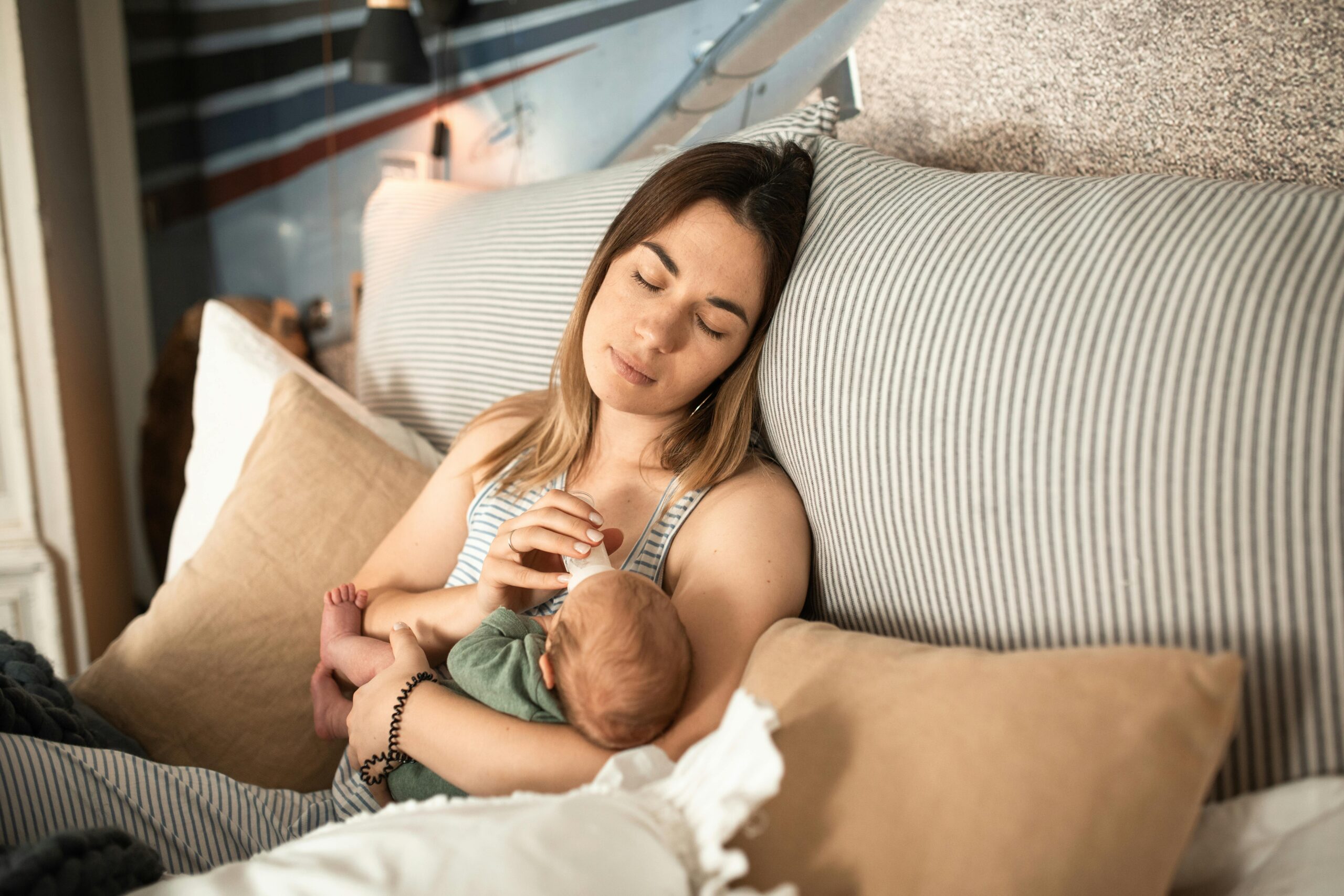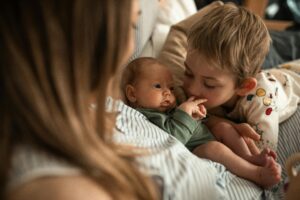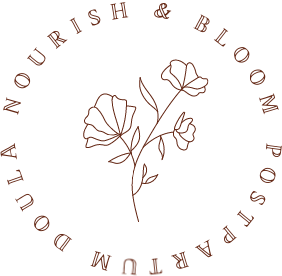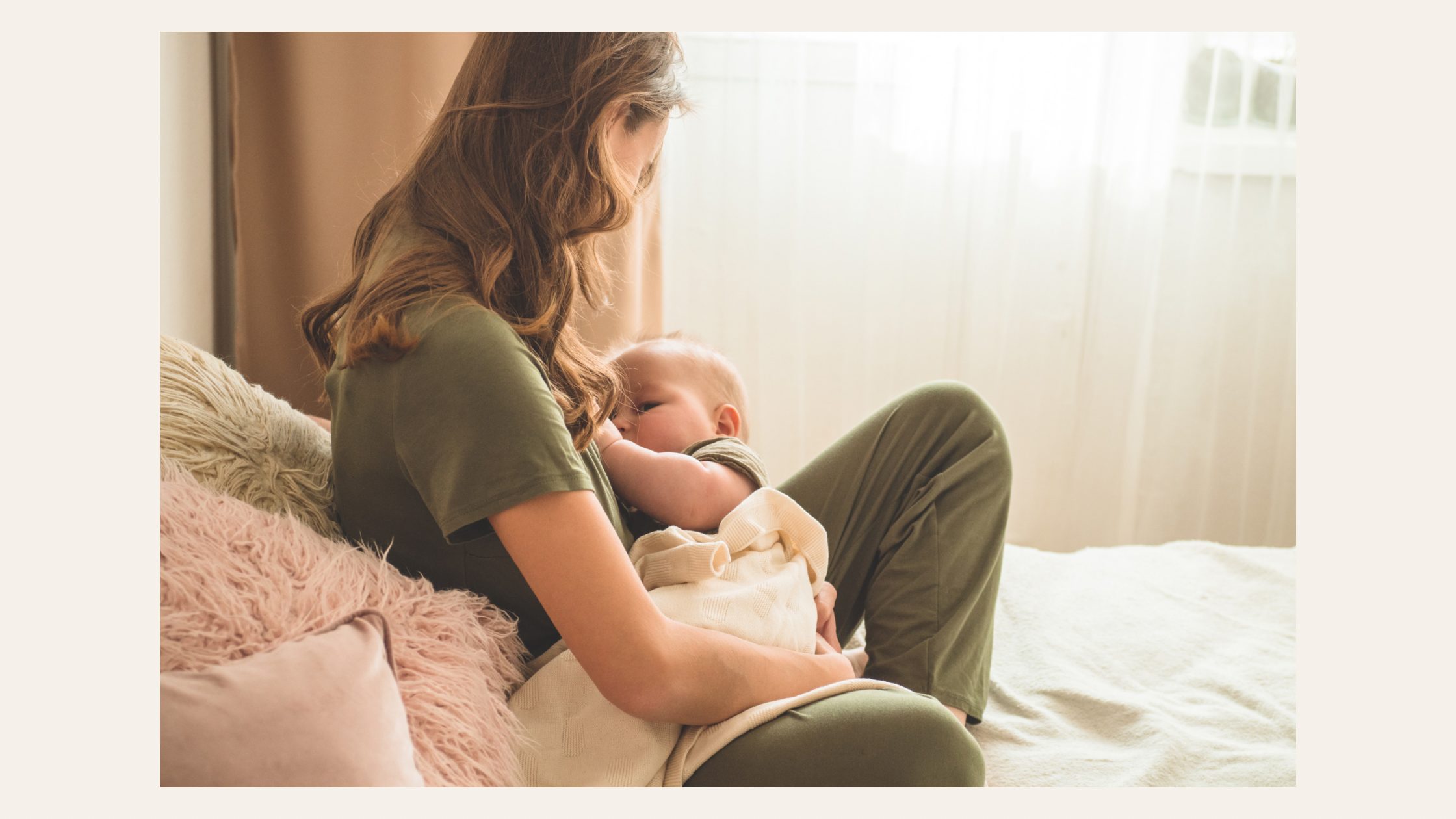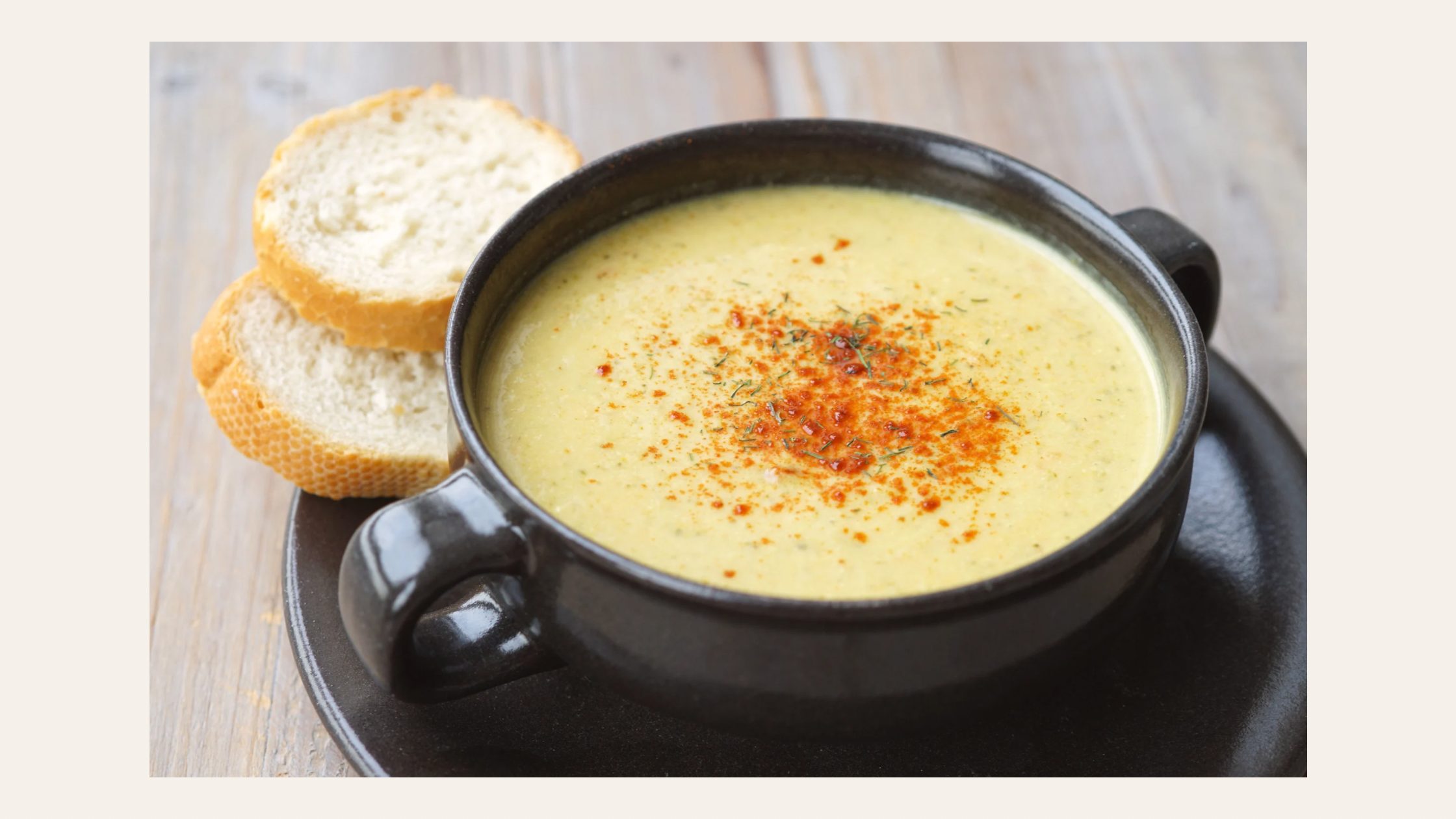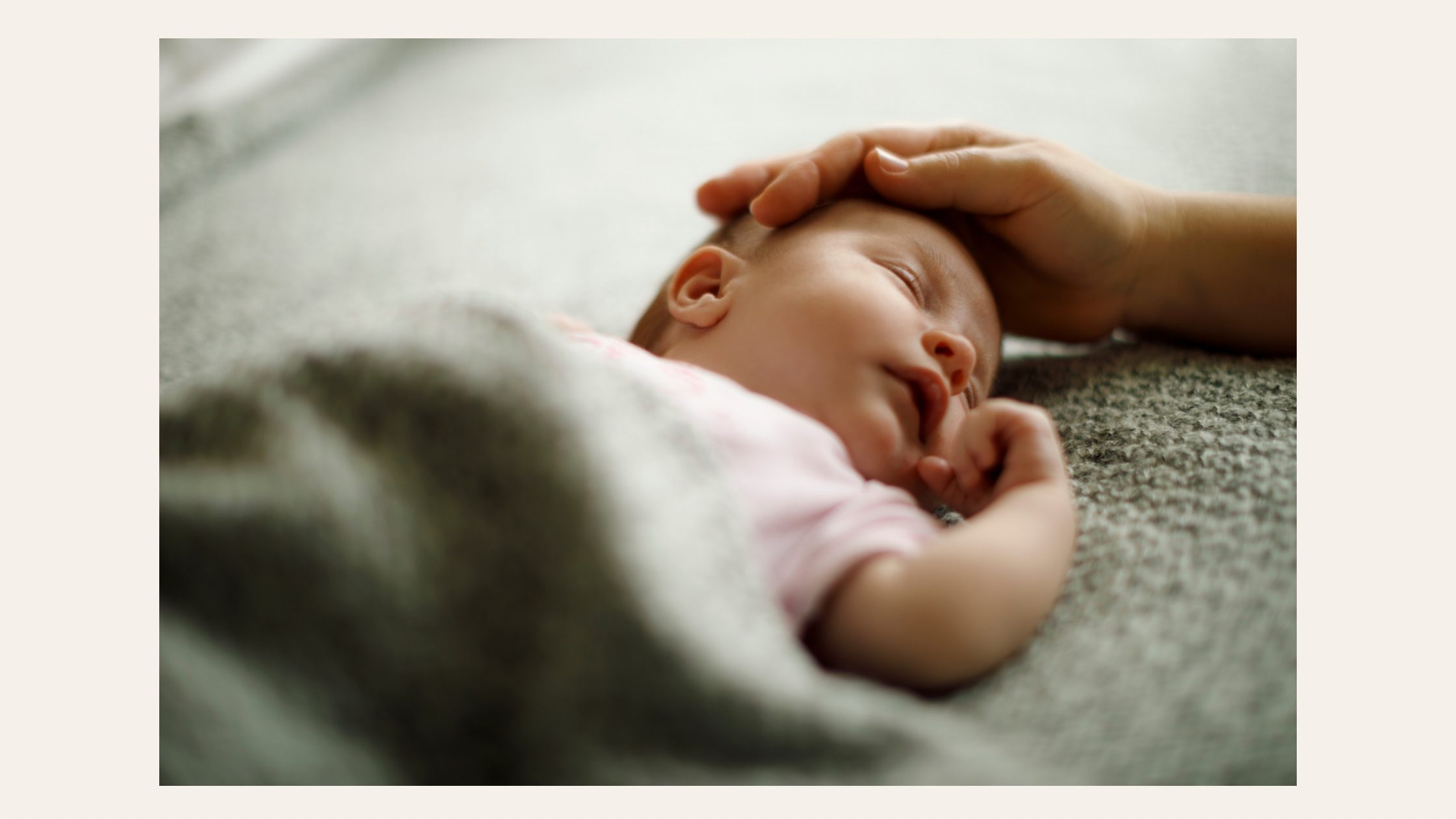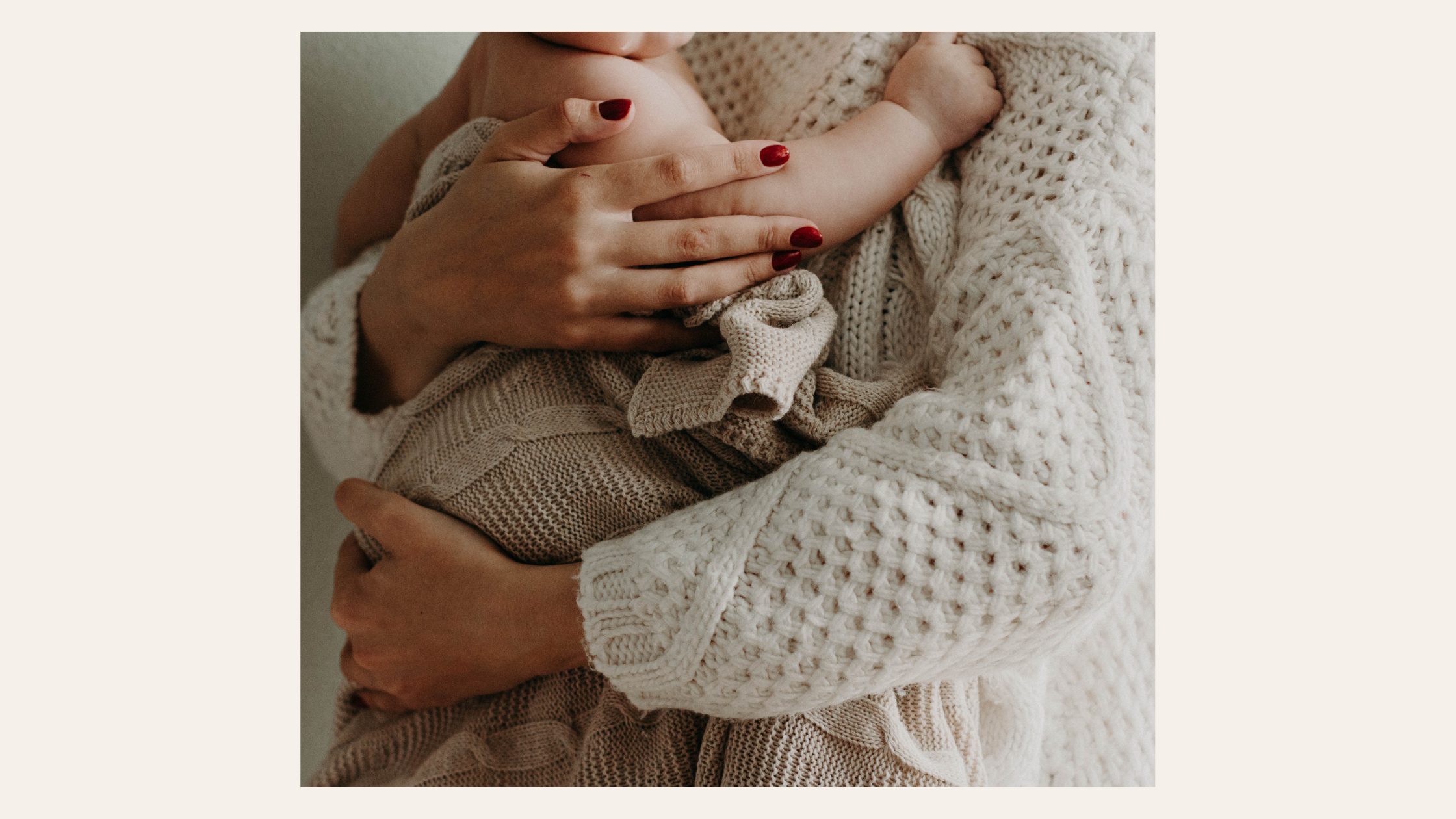
On the 11th of January 2019, just after my youngest son had turned two, I woke up and realised that something was very very wrong. I was in total postnatal depletion. Now looking back I cannot believe it took me so long to notice. Did I really believe everything had been fine? That this was what every mum with two young children felt like, looked like, dealt with?
At this point, my youngest son had only ever slept in 45 minute blocks. He woke up at least every hour over night, had never spent a single night in his crib, needed to be touching me at every moment. He took over two hours to get to sleep every night and had to be pushed back and forth in his pram for most of that time until he drifted off. I lived in a different country from all of my family, my husband worked nights in a busy bar and all of my friends had tiny babies of their own to look after. Every time I spoke to someone about what my life looked like, I got suggestions back about how to fix my son’s sleep – sending me into a spiral of guilt and belief that I was failing my children. I had never felt so alone.
My skin was grey, I barely ate and when I did it was something quick, my body ached, I had gained weight and my hair had fallen out so badly that I had a bald patch the size of a digestive biscuit in the front of my head. Once, when dropping off my kids at the creche, I burst into tears and the directrice told me that I should talk to a psychologist because I wasn’t coping with motherhood very well. I was anxious, argumentative, using wine to unwind in the evening once my son had finally fallen into his first sleep block of the night (a habit I had to go to war against to get rid of eventually). I got absolutely no exercise whatsoever and frankly, barely left my apartment.
There’s no kind way to say this. I was absolutely fucked.
Ironically I also had a two year old business that I had launched to feed and look after new mums because I had seen OTHER MOTHERS struggling to feed themselves and cope when my eldest son was a baby. The business was going from strength to strength because I had hit such a gap in the market – mothers were being left to fend for themselves, alone, tired, malnourished and frightened. In those first two years I was feeding three to six families a week. My children were happy, well cared for, raised in a Montessori home environment that I was obsessed with, well fed. They played with homemade play doh and wooden toys and had a beautiful early childhood while I wilted away beside them. It took me another year to do anything at all about it.
By the time COVID arrived on the scene, I was a shell of myself. Rather than spend confinement shut away in our tiny apartment, I took the kids to my parents house in the English countryside where finally and very slowly, I began to heal.
Was moving into my parents house as a 29 year old mother of two the easiest thing I’ve ever done? No. By that point I had not lived at home with my parents for ten years. I love my parents but we don’t enjoy living together for longer than about four days. My boys and I were there for three months. My mum and dad opened their home to us, no question and threw themselves into grand-parenting through a pandemic. It was the first time I had ever had consistent help with my children, the first time I had someone take them while I slept in, the first time that someone else took them out for a walk without me. For the first time since my youngest was born, I could breathe. I spent long days doing nothing at all but watch my children play in the garden. I made beautiful food again and started photographing it and slowly I started the course that would eventually lead my to my doula work.
This was the moment that I knew things had to change for me. I needed to start clawing my way back to health. If, when I went back to Paris, things didn’t change, I would die. I knew that. I cannot explain how unwell I was. My anxiety had reached such terrifying levels, my self care was non existent, I was nourishing everyone around me but ignoring my own needs. Not placing enough value on myself and my needs was killing me.
This is the part where I can’t quite tell you what I did because I don’t really remember that well. I don’t really know what that first thing was that hauled me out of the pit. But here’s a list of subsequent things I did to get better and after that list I’ll share what I do now to keep myself well.
- I got a therapist. I found someone over instagram who worked remotely because I knew that if I had to get myself to an office once a week, I would not do it.
- I started reading again. Not parenting books, not self help books, not anything to do with work. I started reading cheap Kindle fantasy romance. The stuff I read at the beginning was the easiest, shortest books I could find. They weren’t very good, but they were easy, engaging reads and for someone who used to read two books a week pre-kids, it felt like a lifeline back to the old me.
- I started drinking water. I had practically stopped drinking anything but coffee or wine. I bought a water bottle and started forcing myself to drink water.
- I stopped doing EVERYTHING that stressed me out. I know this seems impossible but what I really mean is that I let go of some standards. If I was too tired to do laundry, I didn’t do it. If the kids wanted to watch TV I let them. If I couldn’t make anything but scrambled eggs for dinner, that’s what we ate.
- I became TERRIBLE at reading and responding to messages, emails and whattsapp. There is no reason whatsoever that you need to make yourself 100% available to people all day long. You can not answer messages. You can not pick up your phone. Before and during COVID between every social media platform, work and all of the mum whattsapp groups, my phone was going off sometimes nearly 500 times a day. I turned it all off, muted every conversation.
- I only ever went to an event or a meet up if I REALLY REALLY wanted to go. Everything else, I let go of.
- I let go of my son’s sleep problems. The only way he slept was curled up against me in my bed so I stopped trying to get him to sleep in his bed. I let him sleep next to me and I embraced getting into bed at 7pm. I prioritised sleep for myself.
- I hired a cleaner. She worked for us for three hours a week and it was the best thing I’ve ever done for myself. Parenting does not include house work as part of the job description. I had a job and I had my kids to look after. I paid someone else to do the housework.
- I started working with an online personal trainer. He was – and is – incredible. His philosophy was perfectly inline with what I needed, to love and care for my body without how it looked being a factor. I worked with this trainer on and off for three years and he’s now a friend. You can find his website here: www.michaelulloa.com
All of that list really means is that I started pulling the focus back to myself. At every possible opportunity I did the thing that would benefit me, my body, my mind. I chose myself over and over again until I felt a shift, until the world came back into focus slightly. And then I chose myself again. When things felt shitty and hard I chose the next right thing for myself. I changed my work path to be more aligned with what I wanted from the world and to offer the world. I finally listened to the small still voice within.
Here I am four years after that realisation that I really really wasn’t OK. Are things perfect? Of course not – I’m a small business owner and the mother of a seven year old and a five year old in a difficult economy in one of the most expensive cities in the world. But I’m healthy and I’ve found everything I need within myself to ride any storm. The things I do now to keep myself healthy look different to what I used to get myself out of the pit, but there are some things I’ll never let go of.
- I am getting better at delegating. We no longer have a cleaner but I do NOT do everything. Everyone in my home has their own jobs and they do them. It’s a non-negotiable. We all live here, we all care for our environment.
- I drink so much water.
- I have rhythms for myself and my children that mean all of our needs are met and there’s no stress in our mornings or evenings.
- I have a very intense skincare and hair care routine – you won’t catch me bald again!
- I pay attention to what I eat and try to sync my meals to my cycle. I pay attention to my cycle in general and try really really hard to make sure that I’m living my best cyclic life.
- I don’t take any hormonal birth control. I use a fertility tracker called DAYSY, which I’ll be writing more about soon.
- I eat intuitively. If you’ve never heard of intuitive eating, I really recommend it and there’s lots of great information out there about how to get started.
- I read every day. Mostly before bed, whilst avoiding my electronics. It makes me feel like the person I was before children.
- I go to bed early (it’s a running joke with my friends that they’ll never get hold of me after 9pm) and I sleep at least eight hours a night. My son, who is now five has just started sleeping through the night a couple of weeks ago!
- I am still crap at answering messages.
- I am selective about who I work with. I will only work with someone if I know that our energies are a good match.
- I protect my peace at any cost.
Within this are a million other little self care practices. I go to the gym 4-5 times a week to lift weights, I lie on my acupressure mat every night, I’m obsessive about taking my supplements and making my bed and moisturising. And if any of this seems excessive, I can tell you with absolute certainty that it’s so much better than the place I inhabited for so long where I didn’t give a single shit about myself, where I was so unwell that I couldn’t find the energy to eat, where food didn’t even taste good anymore, where every ounce of myself was given away to someone else. This is better.
And if you’re in that place, that pit where you can’t see the woman you used to be, can’t remember what feeling good feels like, please remember that there is a ladder, and it does get better and there is light and a good life at the other end of this. Please reach out. To me or to a therapist or to your mum or your partner. Just tell one person “I’m not ok actually.” because I promise that the other side of this is beautiful.
Suggested reading:
– The postnatal depletion cure by Oscar Sellerach
– The fourth trimester by Kimberley Ann Johnson
– Reclaiming childbirth as a rite of passage by Rachel Reed
– Quit like a woman by Holly Whitaker
– Women who run with the wolves by Clarissa Pinkola Estés
